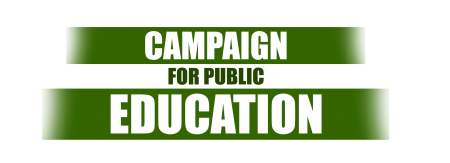Staff recommends Africentric school
Staff approval opens way to black-focused school
Report recommends facility open in 2009; trustees to vote Tuesday
Toronto should open its first black-focused public school in the fall of 2009, says a staff report aimed at improving academic achievement among students of colour.
But the board should also launch Africentric programs in three schools by this fall, as well as invest in a new centre for research and staff development at York University, urges the report made public yesterday.
"Opening one school does not address the problem across the system … (where) a significant number of students of African descent are not doing well in our schools," said board superintendent Christopher Usih, one of the report's authors.
"We have a responsibility to address the needs across the system. We see the Africentric school request as part of a bigger (plan) … to effectively close the gap."
Community members will comment on the sweeping recommendations at a board meeting Tuesday, when trustees are also expected to vote. It's widely expected trustees will accept the recommendations, despite opposition to a black-focused school by several trustees.
The four recommendations come with an initial price tag of $820,000:
- Open an Africentric alternative school in September 2009 and establish a team to determine grade levels and location, among other things (start-up cost of $350,000).
- Start a three-year pilot program this fall in three existing schools that include African history, culture, experiences and the contributions of blacks to society in every aspect of school life ($150,000 per school).
- Work with York University and, later on, other post-secondary institutions – as well as community agencies – to establish a centre of research and staff training focused on "best practices for improving school achievement" among all at-risk students ($15,000).
- Have the director of education develop a board-wide action plan to help all youth who are struggling academically ($5,000).
While advocates had hoped for a black-focused school to open this fall, Usih said board staff needs time.
"We want to make sure it is set up for success."
Almost 60 per cent of students of English-speaking Caribbean descent have fewer than 14 credits by the end of Grade 10 – considered key to staying and succeeding in school – and a dropout rate of about 40 per cent, board statistics show.
Board Chair John Campbell said several trustees oppose a black-focused school in principle, but he personally doesn't.
However, he will not vote on the issue, saying he'd rather simply endorse the decision trustees make.
Runako Gregg, a graduate student at York University and a member of the Black Youth Coalition Against Violence, called the recommendations "quite progressive and definitely a step in the right direction."
But Gregg, 25, cautioned that while making the education system more welcoming to black students is important, there's also a need to address the "root causes of this disenchantment," including poverty and racial stereotypes in society.
The board is already piloting several Africentric social studies units in grades 6, 7 and 8 at roughly 30 schools across the city that focus on the contribution of Africans and African-Canadians, and also has run an Africentric summer camp near Jane St. and Finch Ave. W.
Children at the camp learn about African achievements – including the fact Africa had a university long before Europe – as well as read African-Canadian authors and study math using the numerical patterns of royal "kente" cloth from Ghana.
African-centred schools are not uncommon in the United States, where many boast high test scores and few discipline problems.
Angela Wilson, who along with fellow parent Donna Harrow spearheaded the proposal for the Africentric school, said while they were "very proud of what we've done," she was never pessimistic about their efforts because they were following school board policy for establishing alternative schools that's been in place for more than 40 years.
If the board has already implemented them for First Nations people and gays and lesbians, then why not blacks, Wilson asked.
But Wilson, who continues to call for the alternative school to be opened next September, is angry critics of the proposal have used sensational and emotionally charged terms such as "segregation" to attack it.
"It's not a segregated school. Anyone can attend," she said. "It's become a racial issue. It's become divisive."
Far from being segregationist, Wilson said, the school is about making blacks and other marginalized students feel part of the school system.
It's important that Africentric schools "are a reality for not just black children but all children of all races," Wilson said.
"That's where they really come together and get a world view.
"Right now, the education system is filled with inequities, therefore you're only getting bits and pieces of education."
The Star reported last week on the draft copy of the staff report, which outlined the four options. It did not contain recommendations to the board.
TORONTO STAR Jan 24, 2008 ANDREW WALLACE/ Kristin Rushowy, Daniel Girard – Education Reporters
With files from Louise Brown

